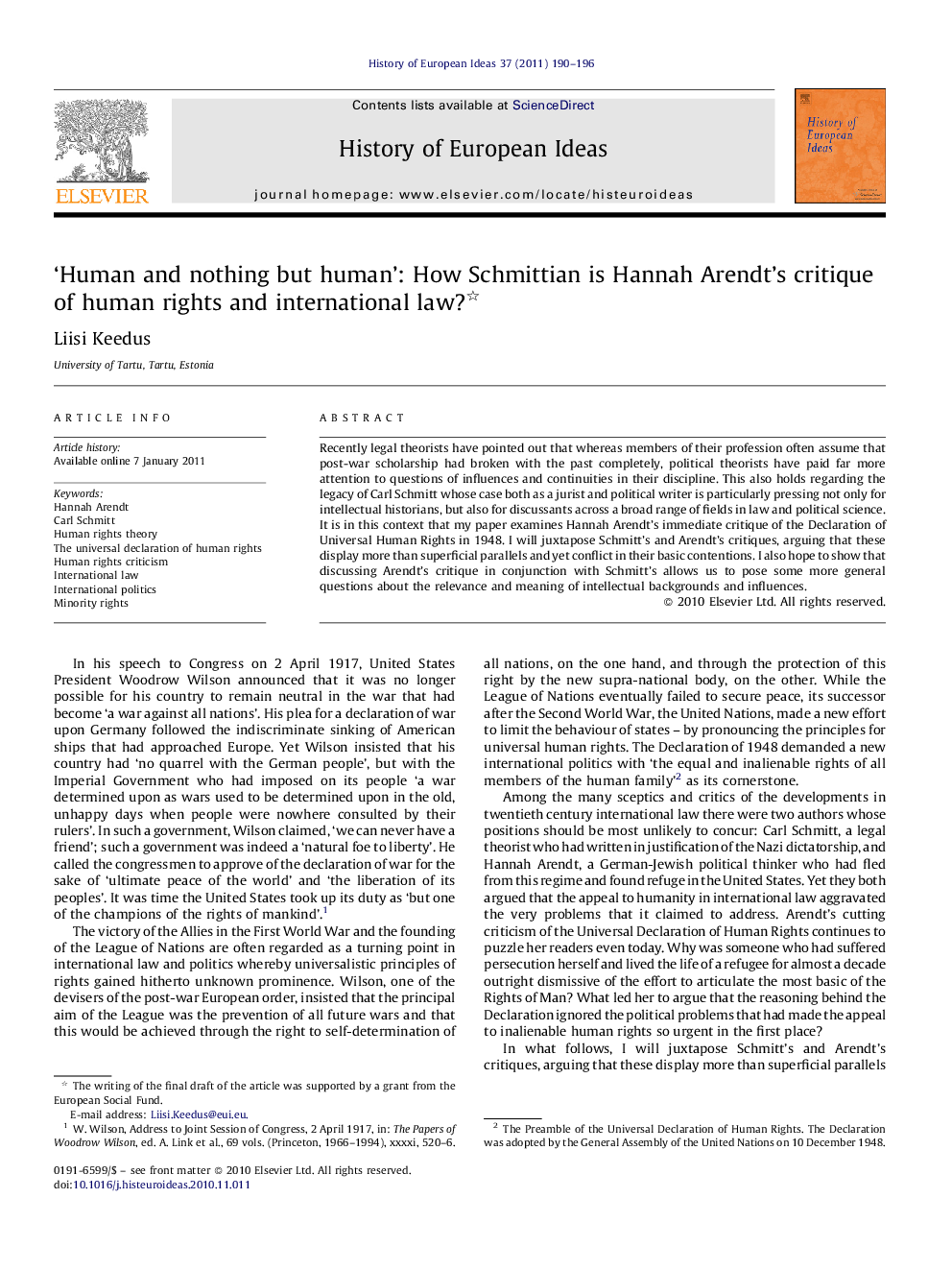| Article ID | Journal | Published Year | Pages | File Type |
|---|---|---|---|---|
| 1158992 | History of European Ideas | 2011 | 7 Pages |
Recently legal theorists have pointed out that whereas members of their profession often assume that post-war scholarship had broken with the past completely, political theorists have paid far more attention to questions of influences and continuities in their discipline. This also holds regarding the legacy of Carl Schmitt whose case both as a jurist and political writer is particularly pressing not only for intellectual historians, but also for discussants across a broad range of fields in law and political science. It is in this context that my paper examines Hannah Arendt's immediate critique of the Declaration of Universal Human Rights in 1948. I will juxtapose Schmitt's and Arendt's critiques, arguing that these display more than superficial parallels and yet conflict in their basic contentions. I also hope to show that discussing Arendt's critique in conjunction with Schmitt's allows us to pose some more general questions about the relevance and meaning of intellectual backgrounds and influences.
